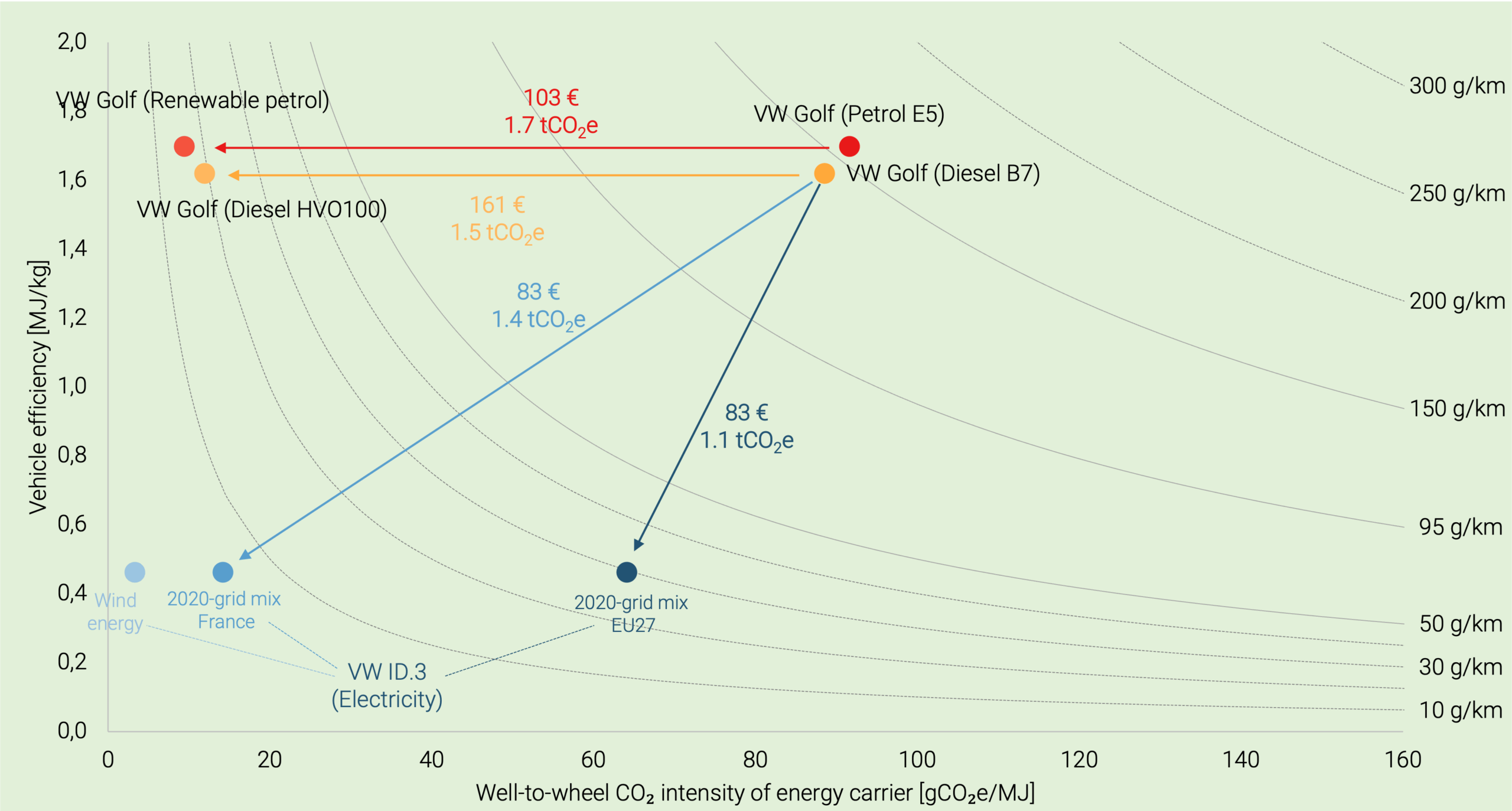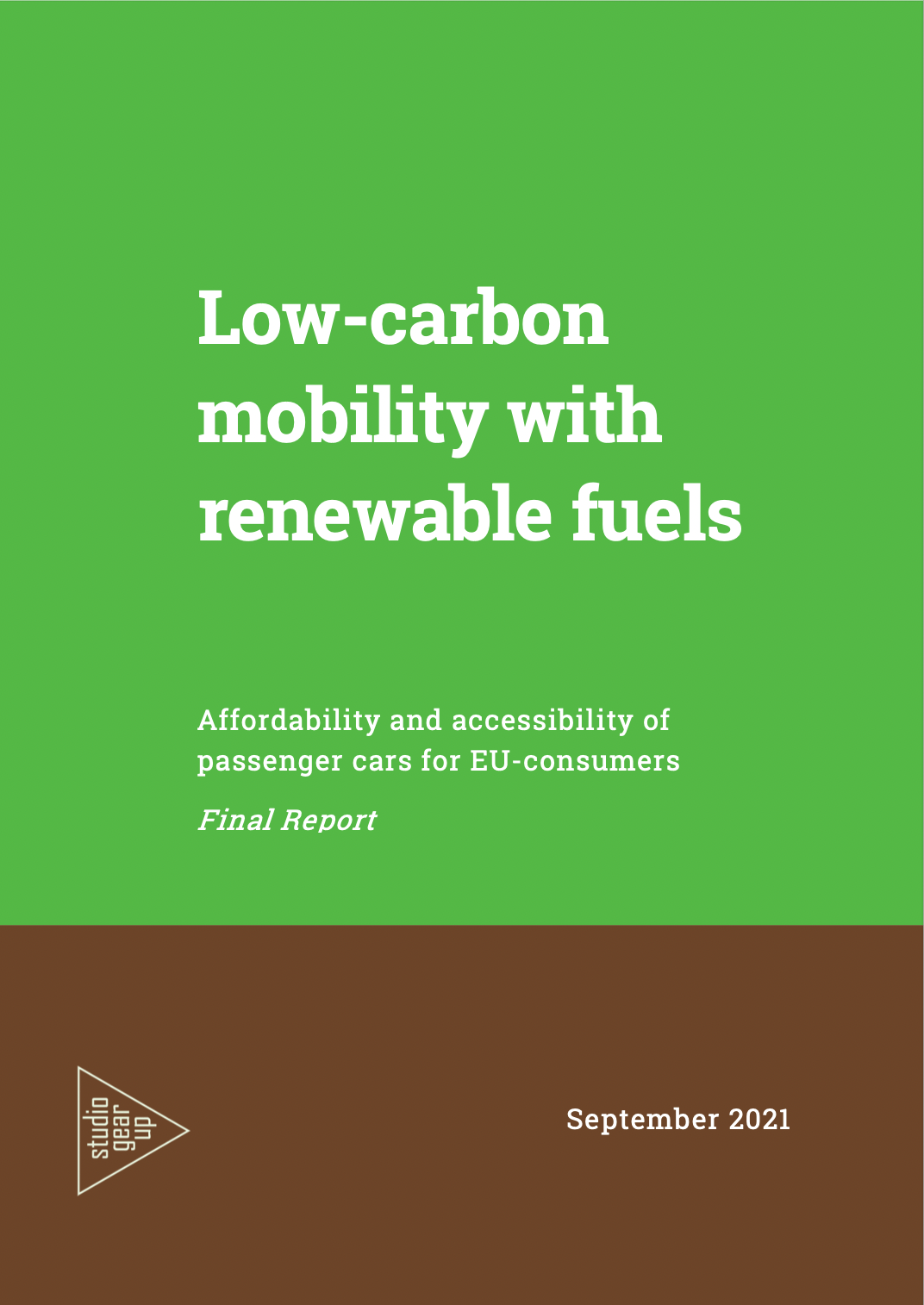For: FuelsEurope
[April – October 2021]
Downloads:
- The Full Report “Low-carbon mobility with renewable fuels“.
- The Annex Report: “Total Cost of Ownership analysis in 16 European Member States“.
FuelsEurope has asked studio Gear Up to study the societal impacts and the consequences of light duty fleet electrification on access to passenger vehicles for EU consumers.
studio Gear Up has shown how either driving on renewable fuels or with an electric drivetrain results in a comparable GHG reduction impact and moderate change in the annual total cost of ownership (TCO) in case no subsidies are applied in either case. This is a relevant finding because the annual TCO of the electric drivetrain is to a large extent influenced by subsidies. The purchase subsidy comes at a considerable cost for – certainly some – governments and will likely not be sustainable for longer periods of time.

The renewable petrol was assumed to deliver a GHG saving of 90% over petrol and HVO100 was assumed to deliver 88% GHG savings over diesel (e.g., via UCO). Renewable petrol is bought for 1.70 €/ltr and HVO100 is bought for 1.58 €/ltThe BEV owner is assumed to receive no subsidy and to charge 50% at home and 50% in public. EU-27 average grid electricity was assumed for the GHG intensity of electricity (255gCO2/kWh).
In the analysis above, studio Gear Up has compared a VW Golf driving on petrol or diesel with the battery electric VW ID.3, for France. For renewable petrol we have based the analysis on the renewable petrol option that Neste has tested in Sweden, modern Euro 6 diesel-engines can technically drive on 100% HVO (although so far only Groupe PSA has officially allowed the use of a 100% blend in Euro 6 for passenger vehicles). France has a high amount of nuclear in the electricity mix, therefore we have also included the carbon intensity of the average electricity mix in Europe. With the current share of renewable electricity in the European electricity mix the renewable fuel blends have a better GHG reduction impact, however the position of the BEV will improve over the coming years due to increasing renewable electricity capacity.
Stimulation of both the use of battery-electric vehicles and high blends of renewable fuels, not only in the heavy-duty road segment, but particularly also in the passenger road segment will be required to faster decrease GHG-reductions in the mobility sector. These volumes of renewable fuels will eventually shift from light-duty and heavy-duty, to aviation and maritime over time. Deployment of higher volumes of renewable fuels will therefor create more policy space to act in reaching climate targets in a) the mobility sector and also for b) the 2030 -55% overall reduction targets and beyond. The CO2-emission standard is the central instrument to make sure the passenger car park will shift from an internal combustion engine to battery electric drive trains. Scaling up renewable fuels is complementary to electrifying passenger road transport.
You can also visit the corresponding page at the FuelsEurope-site.




